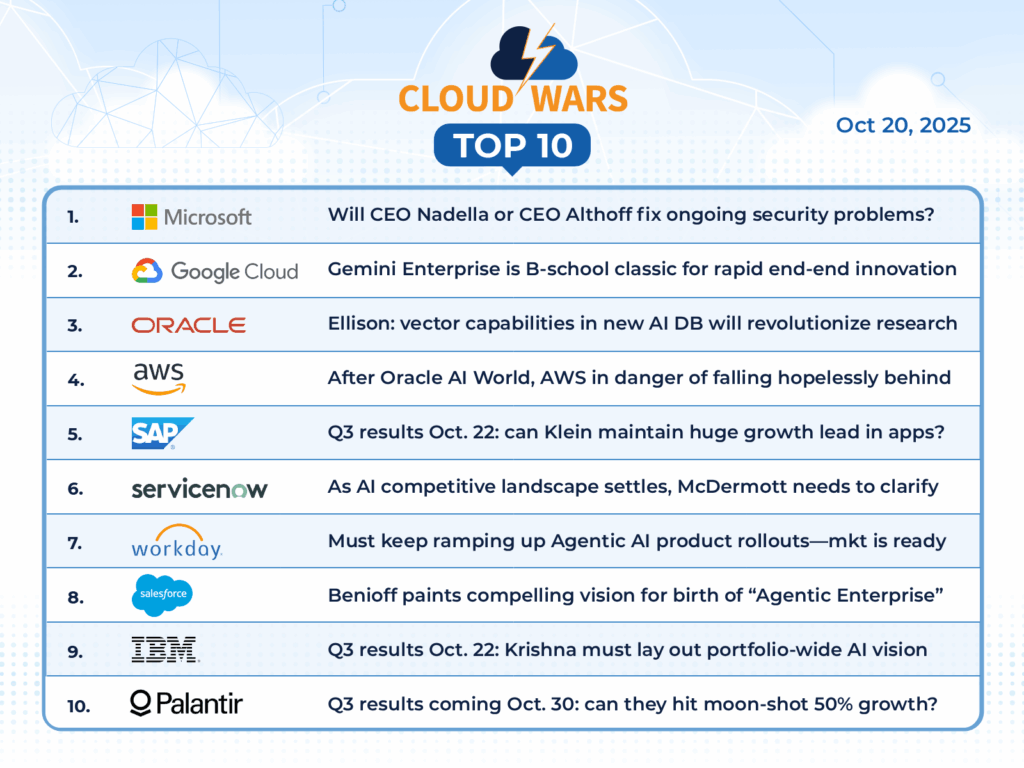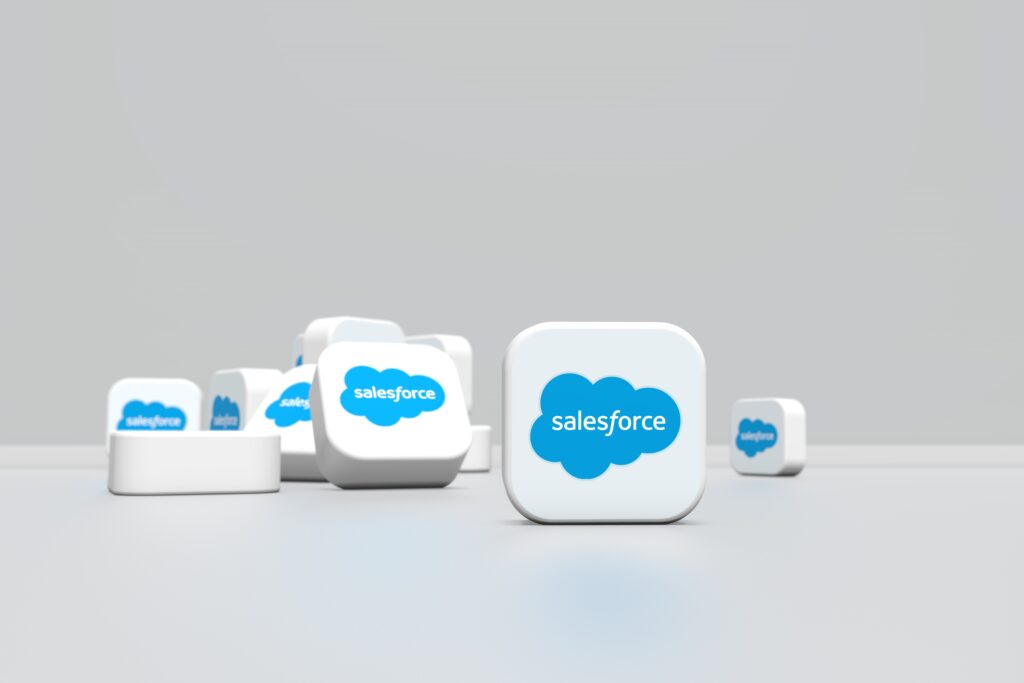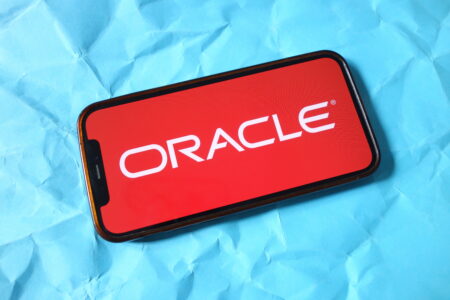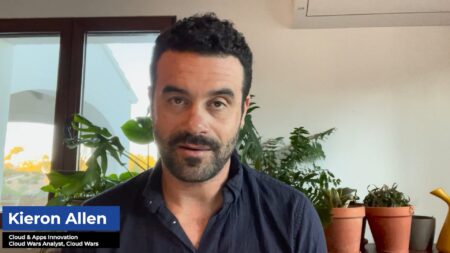
Amid Salesforce’s impressive rollout of new Agentforce capabilities, partnerships, and customer testimonials, the company also revealed that its high ambitions for agentic AI and Data Cloud are pushing it beyond its traditional CRM base into new market categories, including supply chain.
To be clear, Marc Benioff certainly did not say he intends to take on SAP and Oracle and other well-established supply-chain vendors. But what Benioff and his colleagues did say is that the tightly coupled power of Agentforce agentic AI and the Salesforce Data Cloud, combined with expanded partnerships with OpenAI and Anthropic, kick open a world of new capabilities for Salesforce customers that can push the company far outside the CRM boundaries that have largely proscribed its market ambitions over the past 26 years.
Plus, they very specifically showed how one of Salesforce’s largest customers, Dell, is using Salesforce Supply Chain technology to modernize and enhance those critical functions with AI.
On top of that, the company also launched its foray into the IT service-management space, which just so happens to be one of the top businesses at ServiceNow, which itself has begun moving aggressively into the CRM world.

AI Agent & Copilot Summit is an AI-first event to define opportunities, impact, and outcomes with Microsoft Copilot and agents. Building on its 2025 success, the 2026 event takes place March 17-19 in San Diego. Get more details.
As it happens, I don’t believe in coincidences, so I think what we’re seeing here is Benioff leveraging the huge potential and power of agentic AI and his own Data Cloud to enable Salesforce to be able to address a wider range of customers’ needs.
Let’s take a look at each one of those four developments in a bit more detail.
1) Expanded OpenAI partnership. From the announcement: “This first of its kind partnership will let companies access Salesforce’s Agentforce 360 platform in ChatGPT — querying sales records, reviewing customer conversations, or building Tableau visualizations, simply by typing a query into ChatGPT. They can also use OpenAI’s latest frontier models, including GPT-5, to build AI agents and prompts within the Salesforce Platform. And a new commerce experience will give shared customers the ability to sell to hundreds of millions of potential U.S. users in ChatGPT while keeping full control of their processes, data, and customer relationships.” Hmm — sounds like a pretty good foundation for gaining greater access to the world beyond CRM, particularly with OpenAI revealing itself to be an incredibly fast-growing and ambitious player in the enterprise space.
2) Anthropic partnership for regulated industries. Salesforce has had a strong position in vertical-industry solutions for several years, and has stepped up its relationship with Anthropic to strengthen its AI and data capabilities in those industries. From the announcement: “Claude can now be used as a preferred AI model for regulated industries, including financial services, healthcare, cybersecurity, and life sciences, while keeping sensitive data and workloads secure within Salesforce’s trusted environment…. Anthropic and Salesforce will collaborate on industry-specific AI solutions for regulated industries via the Agentforce 360 Platform, beginning with financial services.” That level of heightened trust is essential across all of Salesforce’s business, and will be absolutely essential if it truly desires to expand its presence in the supply-chain world.
3) In plain English: “Salesforce Supply Chain.” Two months ago, Salesforce announced its intention to acquire Regrello, and the deal closed at the beginning of October. And just what does Regrello do? On its website — bearing a logo saying “Regrello from Salesforce” — a big headline says, “The AI operating system for manufacturing and supply-chain operations.” Now, while Salesforce has been listing its involvement in supply-chain solutions for at least four years — a Salesforce blog post from November 2021 is headlined What is Digital Supply Chain Management?–the AI-centered Regrello acquisition ratchets up that involvement to full participation. Indeed, just 2 months ago, the Salesforce newsroom featured an article headlined How an Industrial Giant Is Optimizing Supply Chains and Boosting Growth with Salesforce.
And at last week’s massive Dreamforce event in San Francisco, Benioff’s keynote featured a segment in which Simon Mulcahy — Salesforce’s former chief innovation officer who later served for 11 months as president of Regrello — described how Dell is using Salesforce Supply Chain (Regrello) solutions to bring the power of AI into its enormous global supply chain. Founder and CEO Michael Dell said he sees that move as a part of his effort to transition the company from “calculating and computing” to “thinking about what we should be doing.”
4) Why ITSM is an Agentforce thing. I first talked about this several weeks ago in an analysis headlined Benioff vs. McDermott: Agentic AI Disruption at Heart of Salesforce-ServiceNow Battle. And a couple of weeks ago, Salesforce introduced Agentforce IT Service, describing it as “an agent-first, conversational-first IT support product suite. This scalable, secure, and trusted offering lightens the load of IT teams by delivering instant, conversational resolutions for employees, directly where they work.”
Final Thought
These moves by Salesforce to expand beyond the confines of CRM are not just opportunistic moves by the company to raise its TAM — although there is nothing wrong whatsoever about doing that. The bigger angle is that here in the early days of the AI Revolution, customers are desperately trying to harness the full power of *all* their data to enable end-to-end agentic applications.
So, if Salesforce can use the power of Agentforce and Data Cloud to help customers meet that new objective by expanding into supply chain and ITSM, then it will be a big win for all involved.









